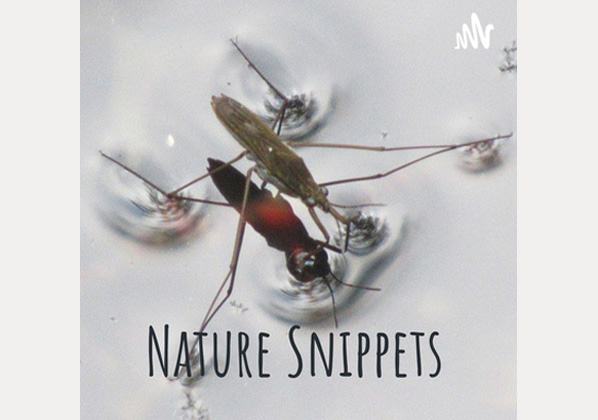Nature Snippets
This podcast is devoted to celebrating the natural world. Topics will include brief discussions of specific organisms, natural phenomena, and things we can all do to protect the natural world and our fellow travelers. As an aquatic ecologist, I tend to focus on life in freshwater. Many of the episodes will be based upon writings published in the last several years.

Life at 39 degrees
Frozen lakes may appear incompatible with life. But "life" begs to differ. Any ice fisher will be happy to list the fish they have caught and the fish are exquisitely adapted to life beneath an icy ceiling. Learn how a quirk of water's physical chemistry makes life possible at 39 degrees. In summer, lakes are stratified into warm layers on top with colder layers below. Frozen winter lakes and ponds are coldest on top and warmer below; this is called inverse stratification.
Nature Snippets
Click to Listen

Summer Skaters
Water striders or pond skaters use pond surfaces as spider webs. They prey upon aquatic organisms surfacing to breath, or on terrestrial organisms that end up stuck in the water surface. This episode explains the photograph I use as the Nature Snippets' logo. Water striders are insects in the order Hemiptera, family Gerridae. The community of organisms living on, and supported by, the surface tension of water bodies, including those organisms hanging beneath the surface tension is called the neuston.
Nature Snippets
Click to Listen

How Insects Spend the WInter
Migration, hibernation, or actively going about their lives, insects are well adapted to dealing with winter weather. This episode gets into some of my favorite examples of the exquisite adaptations that insects use to get through the coldest months.
Nature Snippets
Click to Listen